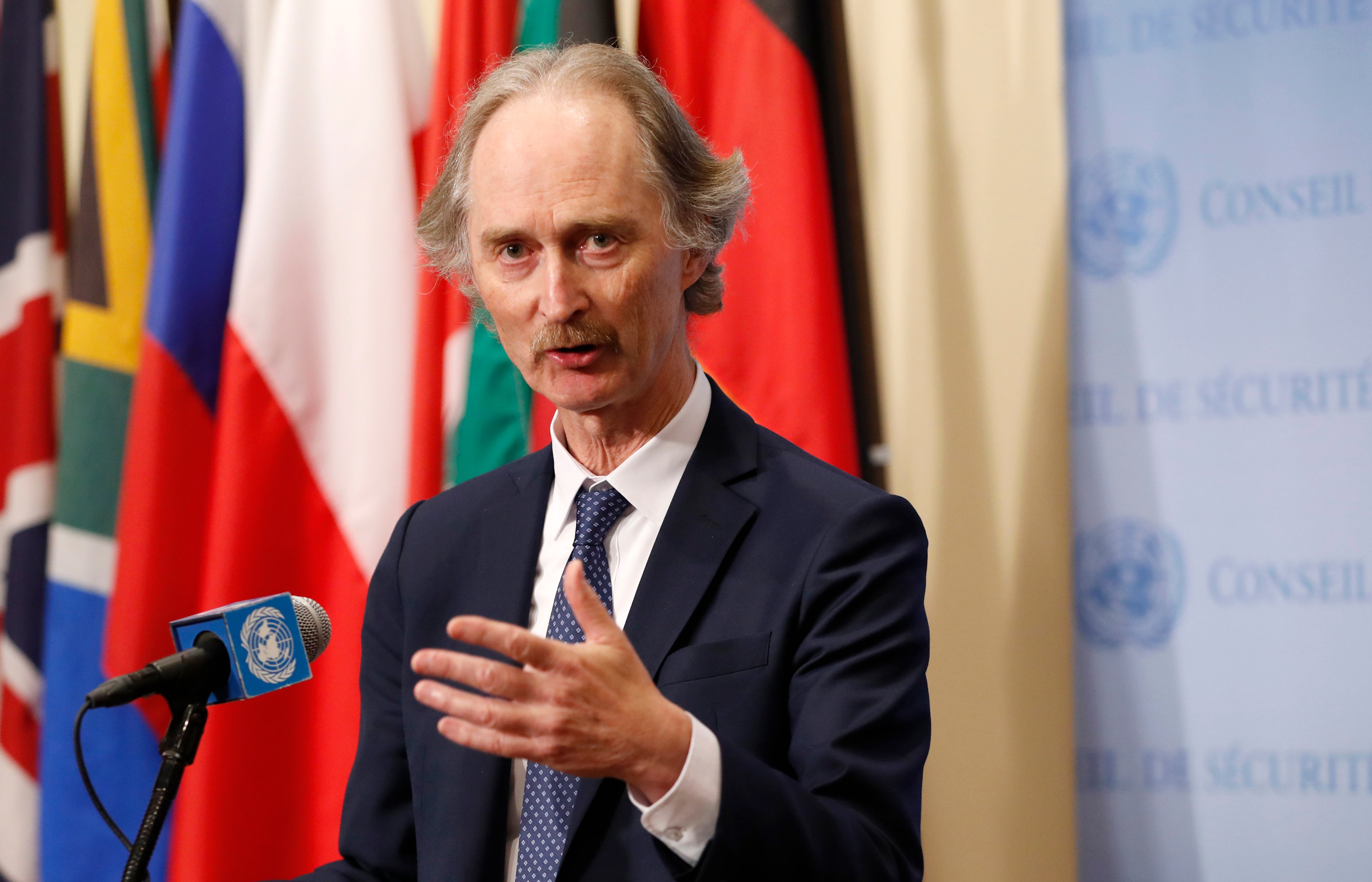UN announces talks on new Syria constitution resume Jan 25
The U.N. special envoy for Syria says the next round of talks toward revising the war-battered country's constitution will start in Geneva on Jan. 25

Your support helps us to tell the story
From reproductive rights to climate change to Big Tech, The Independent is on the ground when the story is developing. Whether it's investigating the financials of Elon Musk's pro-Trump PAC or producing our latest documentary, 'The A Word', which shines a light on the American women fighting for reproductive rights, we know how important it is to parse out the facts from the messaging.
At such a critical moment in US history, we need reporters on the ground. Your donation allows us to keep sending journalists to speak to both sides of the story.
The Independent is trusted by Americans across the entire political spectrum. And unlike many other quality news outlets, we choose not to lock Americans out of our reporting and analysis with paywalls. We believe quality journalism should be available to everyone, paid for by those who can afford it.
Your support makes all the difference.The U.N. special envoy for Syria announced Wednesday that the next round of talks toward revising the war-battered country s constitution will start in Geneva on Jan. 25 and urged the parties to move to actual drafting.
Geir Pedersen told the U.N. Security Council he views the meeting of delegations from Syria’s government, opposition and civil society as very important. He said many subjects have been discussed for more than a year and it’s now time for the Constitutional Committee to ensure that “the meetings are better organized and more focused.”
“I believe that we need to ensure that the committee begins to move from `preparing’ a constitutional reform to `drafting’ one, as it is mandated to do,” he said.
Pedersen said the committee can start considering specific constitutional issues and draft provisions and agree on future meetings on specific topics. “And there needs to be more urgency in the process,” he said.
“I believe that these are reasonable goals, but I cannot assure the council that they will be met this time,” he said, appealing to the committee to be ready to move to a new phase of work in this next session Jan. 25-29.
The United States and several Western allies have accused Syria’s President Bashar Assad of deliberately delaying the drafting of a new constitution to waste time until presidential elections this year and avoid U.N.-supervised voting as called for by the U.N. Security Council.
According to Syria’s elections law, presidential elections are scheduled to take place between April 16 and May 16, at least 90 days before Assad’s seven-year term expires.
A council resolution adopted in December 2015 unanimously endorsed a road map to peace in Syria that was approved in Geneva on June 30, 2012 by representatives of the United Nations, Arab League, European Union, Turkey and all five permanent Security Council members — the U.S., Russia, China, France and Britain.
It calls for a Syrian-led political process starting with the establishment of a transitional governing body, followed by the drafting of a new constitution and ending with U.N.-supervised elections. The resolution says the free and fair elections should meet “the highest international standards” of transparency and accountability, with all Syrians — including members of the diaspora — eligible to participate.
At a Russian-hosted Syrian peace conference in January 2018, an agreement was reached to form a 150-member committee to draft a new constitution, which took until September 2019. A 45-member committee known as the “Small Body” will be holding its fifth meeting starting next week.
Pedersen, who has been overseeing the talks, told the Security Council that under the U.N. resolution it is clear that the political process “must be Syrian-owned and led, but the conflict is highly internationalized, with five foreign armies active in Syria.”
The world cannot “pretend that the solutions are only in the hands of the Syrians, or that the U.N. can do it alone,” he said.
Pedersen urged “a more serious and cooperative international diplomacy” saying despite their differences key countries are committed to the U.N. resolution.
After a decade of conflict, he said peace is also more urgent, pointing to the suffering of millions of Syrians inside and outside the country “grappling with deep trauma, grinding poverty, personal insecurity, and lack of hope for the future.”